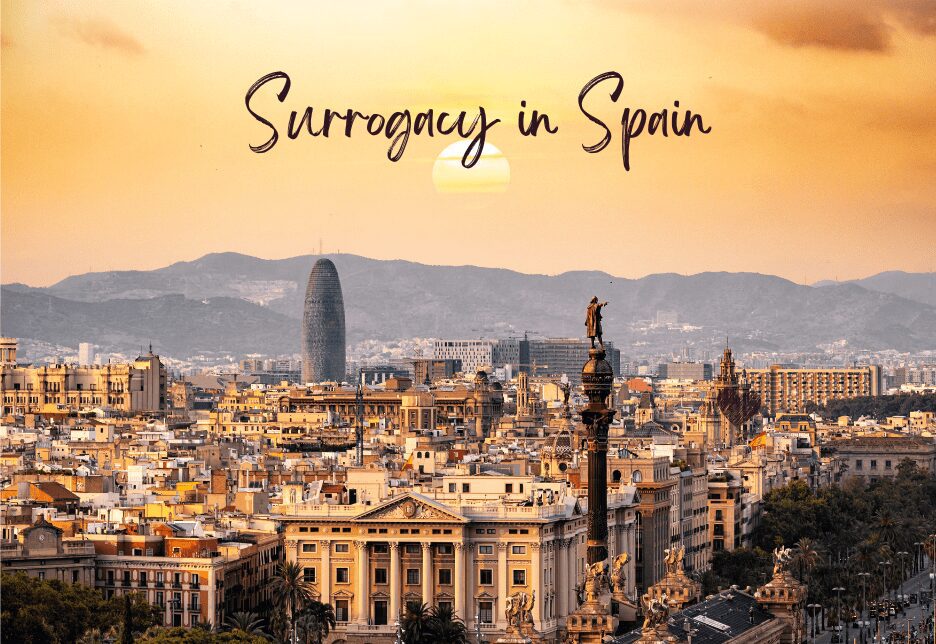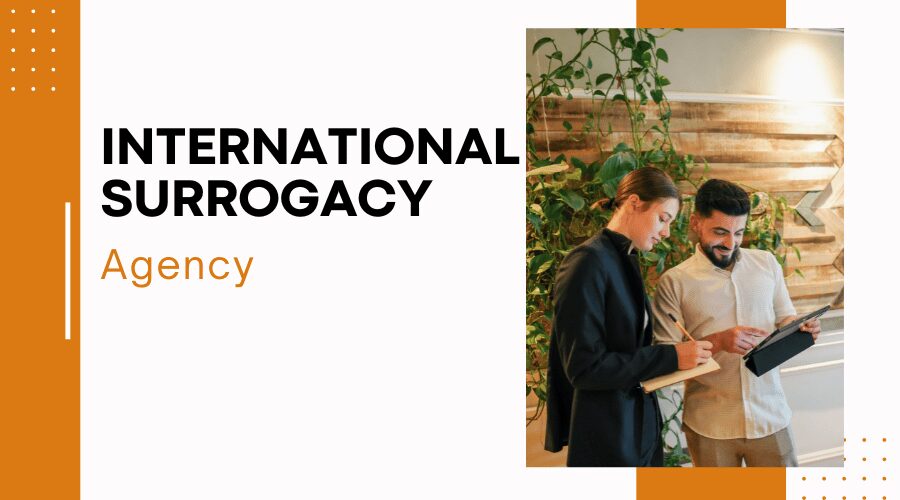
Each year, thousands of intended parents worldwide explore surrogacy as a pathway to parenthood, yet many are unaware that surrogacy in Spain is not legally permitted. This reality leaves many with unanswered questions about their options and the future of their families.
Surrogacy remains a complex topic in Spain due to strict legal restrictions. While many intended parents hope to pursue surrogacy within the country, Spain prohibits all forms of surrogacy, including both commercial and altruistic surrogacy.
This comprehensive guide explores the legal status of surrogacy in Spain, alternative options for Spanish intended parents, and key considerations when seeking surrogacy abroad.
For many, the process begins locally, with treatments coordinated through trusted clinics. However, the embryo transfer often takes place in countries with established legal frameworks, such as the United States, Canada, or Ukraine. This seamless coordination allows families to pursue their dreams while adhering to legal and ethical standards.
Interestingly, the number of Spanish children born via surrogacy abroad continues to grow, highlighting the relevance of this topic for many families. Whether you’re just starting your research or ready to take the next step, this guide is here to provide clarity, support, and guidance every step of the way.
Key Takeaways
✅ Surrogacy is illegal in Spain – All surrogacy contracts are null and void under Spanish law.
✅ Spanish parents pursue surrogacy abroad – Popular destinations include the U.S., Georgia, Ukraine, Colombia, and Mexico.
✅ Legal challenges exist – Registering a surrogacy-born child in Spain requires complex legal steps like adoption.
✅ Costs vary by country – U.S. is the most expensive ($100,000+), while Georgia and Ukraine are more affordable ($45,000–$70,000).
✅ Alternatives include – Adoption, co-parenting, assisted reproduction, or relocating to a surrogacy-friendly country.
Understanding the Legal Landscape of Surrogacy in Spain
Spain’s legal framework regarding surrogacy is complex and restrictive. The country does not permit surrogacy due to legal prohibitions, leaving intended parents to explore international options.

Spanish Legal Restrictions and International Alternatives
Under Spanish law, specifically Article 10(1) of Law 14/2006, surrogacy contracts are deemed null and void. This legal vacuum forces many to seek solutions abroad, often in countries with more permissive regulations.
| Country | Legal Framework | Key Features |
| United States | Varies by state | Commercial surrogacy allowed in some states |
| Canada | Altruistic surrogacy permitted | Commercial surrogacy prohibited |
| Ukraine | Permissive laws | Popular destination for international surrogacy |
| Georgia | Commercial surrogacy allowed | Hetero couples can do surrogacy |
Judicial Precedents and Court Rulings
Court rulings in Spain have upheld international surrogacy decisions, allowing parents to register their children born abroad. This process involves obtaining foreign court orders and navigating authorization procedures to ensure legal recognition.
The legal relationship between the surrogate, intended parents, and child is protected through careful documentation and adherence to ethical guidelines. Ensuring all parties’ rights are safeguarded is paramount.
For those considering international surrogacy, understanding the legal requirements and engaging with experienced legal advisors is crucial. This ensures a smooth process and compliance with all regulations.
Is Surrogacy Legal in Spain?
In Spain, surrogacy is strictly prohibited under Article 10 of the Assisted Reproduction Law (14/2006), which declares any surrogacy contract null and void. The law states that the woman who gives birth to a child is legally recognized as the mother, regardless of any surrogacy agreements.
Key Legal Aspects of Surrogacy in Spain
- All surrogacy agreements are legally unenforceable.
- The surrogate mother is always the legal mother, even if she has no genetic connection to the child.
- Spanish law does not differentiate between commercial and altruistic surrogacy; both are banned.
- Intended parents may face legal challenges when registering a child born through surrogacy abroad.
Consequences for Violating Surrogacy Laws in Spain
- Legal repercussions: Entering into a surrogacy contract within Spain has no legal standing and can lead to complications.
- Parental recognition issues: Spanish authorities may refuse to recognize intended parents as the legal parents of children born via surrogacy in other countries.
- Complex adoption procedures: In some cases, Spanish parents must go through legal adoption processes to gain parental rights.
Related surrogacy Costs guides:
What is the average surrogacy cost?
How much does surrogacy cost in Ukraine?
How much does surrogacy cost in Georgia?
How much does surrogacy cost in India?
What is the Surrogacy Cost in Colombia?
What is Surrogacy cost in Mexico?
What is surrogacy cost with family members?
International Surrogacy Options for Intended Parents
For intended parents exploring global surrogacy options, several countries offer legal and ethical pathways to parenthood. The United States, Canada, and Ukraine are among the most popular destinations, each with unique legal frameworks and benefits.
Surrogacy Abroad for Spanish Intended Parents
Due to Spain’s restrictive surrogacy laws, many Spanish couples and individuals turn to international surrogacy. However, the process involves legal, financial, and logistical challenges.
Best Surrogacy Destinations for Spanish Parents
| Country | Legal Status | Eligibility | Estimated Cost (USD) |
| United States | Legal in many states | Open to all (heterosexual, LGBTQ+, singles) | $100,000 – $150,000 |
| Georgia | Legal but restricted | Only for married heterosexual couples | $45,000 – $65,000 |
| Ukraine | Legal but restricted | Only for married heterosexual couples | $45,000 – $70,000 |
| Colombia | Legal and accessible | Open to all (heterosexual, LGBTQ+, singles) | $60,000 – $80,000 |
| Argentina | Legally favorable | Open to all, including LGBTQ+ parents | $55,000 – $75,000 |
| Mexico (Quintana Roo) | Legal but varies by state | Open to international parents in select states | $50,000 – $75,000 |
Key Considerations for Spanish Parents Choosing Surrogacy Abroad
- Legal parentage recognition: Some countries allow direct parental recognition, while others require adoption.
- Citizenship and passport issuance: Spanish authorities may require additional legal steps to grant Spanish nationality.
- Costs and financial planning: Expenses include agency fees, medical costs, legal fees, and surrogate compensation.
- Ethical and medical standards: Ensuring high medical standards and ethical surrogacy practices is crucial.
Navigating the Surrogacy Process in Spain: From Application to Birth Registration
Embarking on the surrogacy journey can feel overwhelming, but understanding each step can make the process manageable. This guide breaks down the surrogacy process into clear, sequential steps, helping you navigate from the initial application to the final birth registration.
Step-by-Step Overview of the Process
The journey begins with an application, where intended parents provide essential documentation. This includes medical records, legal agreements, and personal information. Once the application is approved, the next step is IVF treatment to create embryos, which are then transferred to the surrogate.
After a successful embryo transfer, the surrogate will carry the pregnancy to term. Throughout this time, regular communication between the intended parents and the surrogate is crucial. Legal documentation, including court orders and parentage declarations, is prepared to ensure the intended parents’ rights are established.
After the baby is born, the final steps involve obtaining a birth certificate and completing any necessary legal processes for birth registration. This ensures the child is legally recognized as the intended parents’ biological offspring.
Legal Documentation and Court Authorizations
Legal steps are critical to secure parental rights. This includes obtaining court orders and ensuring all legal documentation is in place. Depending on the country, additional authorizations may be required to finalize the birth registration and ensure the child’s citizenship is recognized.
Understanding each phase of the surrogacy process and the legal requirements involved can alleviate concerns. With proper guidance, the journey can be both successful and fulfilling for all parties involved.
How Do Spanish Intended Parents Register a Child Born via Surrogacy?
 Since Spain does not recognize surrogacy agreements, registering a child born abroad can be legally complex.
Since Spain does not recognize surrogacy agreements, registering a child born abroad can be legally complex.
Steps to Register a Surrogacy Birth in Spain
- Obtain the child’s birth certificate from the country where the surrogacy took place.
- Confirm parentage through DNA testing (if required by Spanish authorities).
- Apply for the child’s Spanish nationality through administrative or legal procedures.
- Undergo legal adoption in Spain if the non-biological parent is not recognized.
- Follow embassy and consulate regulations for obtaining travel documents.
Potential Challenges in the Process
- Delays in legal recognition: The process may take months or even years.
- Judicial intervention: Courts may require intended parents to adopt their child.
- Inconsistent rulings: Different cases have led to varying outcomes in Spanish courts.
Pros and Cons of Pursuing Surrogacy Abroad as a Spanish Parent
Pros:
✔️ Allows Spanish parents to build a family despite domestic restrictions.
✔️ Some countries offer strong legal protections for intended parents.
✔️ Access to high-quality medical care in surrogacy-friendly destinations.
✔️ LGBTQ+ and single parents have options in countries like the U.S., Colombia, and Argentina.
Cons:
❌ Legal challenges when registering the child in Spain.
❌ High costs associated with surrogacy programs abroad.
❌ Risk of legal uncertainty due to evolving international surrogacy laws.
❌ Ethical concerns regarding surrogate compensation and rights.
Alternatives to Surrogacy for Spanish Intended Parents
Since surrogacy is illegal in Spain, some intended parents consider alternative paths to parenthood:
1. Adoption
- Domestic and international adoption are legal alternatives, though they involve lengthy processes.
- Adoption laws vary by country, requiring careful research.
2. Co-Parenting or Assisted Reproduction
- Spanish law allows IVF and egg/sperm donation within certain regulations.
- Co-parenting agreements with another party are an option but require legal consultation.
3. Moving to a Surrogacy-Friendly Country
- Some Spanish intended parents relocate to surrogacy-friendly countries for better legal protections.

Conclusion
While surrogacy in Spain remains a complex and legally challenging option, international pathways offer hope for many couples seeking to build their families. Despite the legal restrictions, landmark court decisions have provided a framework for recognizing children born abroad through surrogacy, ensuring their rights and identities are protected.
While surrogacy remains illegal in Spain, there is ongoing debate about potential legal reforms. Some advocates argue for regulated surrogacy to protect intended parents and surrogates, while others believe the ban should remain in place due to ethical concerns.
For now, Spanish intended parents must seek surrogacy abroad and navigate complex legal processes for parental recognition. Consulting with international surrogacy experts and legal professionals is essential for a smooth and legally secure journey.
Are You Considering Surrogacy as a Spanish Intended Parent?
Contact an experienced surrogacy consultant today to explore the best options tailored to your needs!
We are a leading International Surrogacy Industry Expert with more than 15 years of global experience and expertise. Get in touch with us about affordable, reliable, and legal surrogacy options.
Get in touch for a Free Surrogacy Consultancy:
📲 +91-8800481100 ( WhatsApp, Line, Viber)
Why Choose us for your smooth and successful surrogacy journey!!
- Option of choosing multiple surrogacy destinations with 14+ Years of international surrogacy experience.
- Getting a chance to work with fertility clinics/agencies that are elite and have proven track record with reference from existing IPs.
- Option of choosing multiple egg donor options- Asian, Caucasian, African, Oriental etc.
- All transparent financial transactions with affordability. You make direct payment with no additional fee on top.
- No hidden agent fee or surprise cost later on. All fees paid directly as per the agreement signed with service provider.
- Dedicated case manager to each IPs.
- Honest, transparent and quick communications.
- Assistance in all legal matters pertaining to visa and taking baby home process.
- Local support with access to all medical reports of egg donors and surrogate mothers.
- Assistance in all logistics of frozen sperms/embryos shipments.
- Last but not least, we have years of experience in coordinating delicate surrogacy programs with great personal care.
FAQs for surrogacy in Spain
 Is surrogacy legal in Spain?
Is surrogacy legal in Spain?
Surrogacy in Spain is not legally recognized, and there are no specific laws governing the process. However, many intended parents explore international options like the United States or Ukraine, where surrogacy is legally supported and regulated.
What is the surrogacy process like for intended parents?
The process typically involves selecting a surrogate, creating embryos through IVF, and transferring them to the surrogate. Intended parents work closely with agencies or legal experts to ensure everything is handled ethically and smoothly.
How much does surrogacy cost?
Costs vary widely depending on factors like location, agency fees, and medical expenses. On average, intended parents can expect to spend between $80,000 to $150,000 or more for the entire process.
How are surrogates selected?
Surrogates are carefully screened for physical and emotional health. They must meet specific criteria, such as being a certain age range and having had previous successful pregnancies. Psychological evaluations are also common.
What legal rights do intended parents have?
In many countries, intended parents can establish legal parenthood through pre-birth orders or adoption. However, the process varies by jurisdiction, so working with legal experts is crucial.
How is the health and safety of the surrogate and baby ensured?
Regular medical check-ups, prenatal care, and open communication between the surrogate and intended parents are standard. Agencies often coordinate these efforts to ensure everyone’s well-being.
Can same-sex couples pursue surrogacy?
Yes, many same-sex couples successfully build their families through surrogacy. The process is similar to heterosexual couples, with the same legal and medical steps.
What support is available for intended parents?
Intended parents can access emotional support through counseling, support groups, and communication with their surrogate. Agencies often provide guidance throughout the journey.
How long does the entire surrogacy process take?
The process can take about 1 to 2 years, including matching with a surrogate, IVF procedures, pregnancy, and legal steps. Timing varies depending on individual circumstances.
What documents are needed for surrogacy?
Required documents typically include legal contracts, medical records, and birth registration papers. Specific requirements depend on the country and agency involved.
Source Links
- https://www.huerga-abogados.com/en/frequently-asked-questions/ – FAQ – HUERGA ABOGADOS surrogacy
- https://www.theregreview.org/2024/03/02/international-approaches-to-surrogacy-regulation/ – International Approaches to Surrogacy Regulation | The Regulatory Review
- https://www.inovifertility.com/blog/navigating-international-surrogacy-laws-and-regulations/ – Navigating International Surrogacy Laws and Regulations


 Is surrogacy legal in Spain?
Is surrogacy legal in Spain?